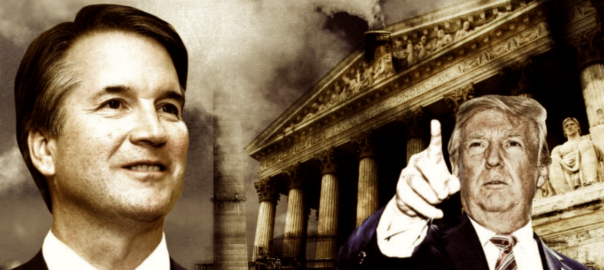
Our divided American political world offers peacemaking opportunities for local churches. As leaders and congregations committed to Biblical authority and the timeless moral and spiritual convictions of historic Christianity, we will never please everyone or always win over our opponents. This is why compassionate, intercession-infused courage and wisdom are vital for leading God’s people in to maturity and kingdom influence.
The obvious “hot-button” economic, moral and social issues must be confronted: divisions of class, gender and race, abortion and infanticide, marriage and sexual ethics, peace and war and many more. These require deep study, discernment and humility.
There are, however, hidden issues of love and justice that the local church is uniquely equipped to address. Convening partners and confronting particular barriers to flourishing will enhance peace among diverse groups and offer a shining witness of Christ in a world darkened by moral inversion and spiritual confusion.
One day in Nashville, TN, a group of pastors met to learn more about connecting Sunday faith and Monday work and infusing integration into their worship service, discipleship plans and outreach efforts. In the midst of a lively conversation of church and community flourishing, an African American pastor stood up and spoke, his voice trembling and full of pathos: “I am not an angry man. I have been a pastor in my church and neighborhood for over thirty years. Your church [here he pointed to a young church-planting leader] just set up your franchise two blocks away. No one called me. No one thought to talk to the people of the neighborhood. What you call gentrification and opportunity we call exile. Aren’t we supposed to work together? Where will my people go when they can’t afford to live in their neighborhood?”
There was a holy silence. The church planter humbly apologized and with tears, both leaders agreed to work together. The hidden issue? Gentrification. What some see as a positive transformation of blight is often displacement of generations of residents. What can the local church do?
Pastors and church have unique convening ability. Creating space for shared vision, dialogue and forging alliances among business, cultural, educational, social service, religious, and political leaders for the common good is a prophetic opportunity. Asking the question, “What does a flourishing neighborhood look like…and how can everyone be a part of the future?” and hosting people with the influence, skills and wisdom to forge a just answer is part of our calling as a church. One of the great critics of the early church in the 2nd and 3rd century was a man named Celsus. He was particularly indignant that the communion table welcomed all classes, cultures, races and both genders. Pastors can bring wise believers and people of conscience in all domains so that a community can improve without scattering generations of residents.
The second hidden issue is deeply connected to the first: How can we help foster true equity and create opportunities for sustainable work so that all classes and cultures flourish in a rapidly-changing world? Put another way, how do we empower folks that are left behind in the name of “progress” or the “gig economy”?
The local church, in cooperation with other churches and agencies, can shine brightly as she empowers congregants and the community with the spiritual, emotional, relational, vocational and occupational support and wisdom people need. Immediate emergency aid is good, but long-term, relational investment in people will yield much better results. The 21st century global economy demand workers with clarity and stability in their vocations and great flexibility and nimbleness in their daily occupations. Pastors can help create disciples able to understand and respond to the local and global changes. Local churches can convene forums for community growth that is inclusive and just.
One growing local church recently sold some property. Instead of either building a bigger church building or sitting on the funds, the congregation fostered ten new initiatives that help the community flourish, including new business incubation, life skills training and compassionate outreach programs offering hope for many.
Jeff Greer, senior pastor of Grace Chapel in Mason, OH (in the Cincinnati metro area) has articulated a vision he calls, “Biznistry.” The local church can be an incubator of economic, social, and spiritual transformation as she empowers and equips men and women in creating sustainable enterprises that in turn contribute resources for future entrepreneurs.
The third hidden arena of love and justice concerns the unseen populations often overlooked in our conversations on flourishing. These include ex-prisoners and their families, and people with disabilities. Our neighborhoods and our nation are missing out on these divine image bearers that have much to offer as opportunities for meaningful work and service are made available.
People coming out of incarceration need the social capital of the local church so that they can grow in self-worth, learn needed skills and find open doors for sustainable work. Women and men with disabilities can be productive workers, not just objects of charity. These hidden groups can be participants in the more that 600 churches with some form of “job club.” Helping people find sustainable work in a rapidly changing economy is integral to the local church’s mission.
Whether it is the Career Actions Ministry of Menlo Park Presbyterian Church (now helping older people find and keep work in a “gig economy” that favors the young), Jeff Greer’s Biznistry for entrepreneurs or the efforts of restauranteur Tom Landis in Texas who employs men and women with autism and Down Syndrome, local churches can foster a creative and innovative vision offering hope and wisdom.
Navigating political issues will never be easy. Pastors need love, courage and wisdom as they equip God’s people for engagement – not just in voting – but in being part of the solution. Pastors can also help church and community look past the obvious issues and create fresh pathways forward so all can thrive, without capitulating to ideological extremes and the paralysis of partisan politics.




